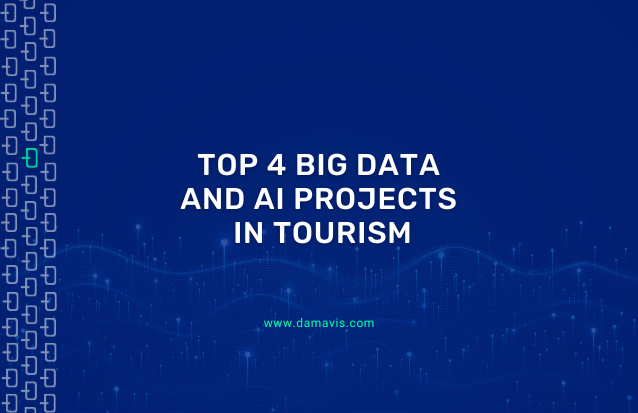Damavis is a consulting company specializing in Big Data and Artificial Intelligence with headquarters in Mallorca, a Spanish island with a significant concentration of companies in the tourism sector of great relevance worldwide.
Within the field of tourism, we can find a multitude of types of companies where, more and more, good data management is decisive to guarantee, not only the competitiveness of these companies, but to guarantee their existence in the long term.
Tourism companies such as hotel chains, Online Travel Agencies (OTA), bed banks, airlines, receptives and many others, have great potential to improve their competitiveness from the implementations of solutions based on Big Data and Artificial Intelligence.
Damavis, having been born among one of the most important tourist hubs on the planet, has had its trust to carry out a wide variety of data management projects in tourism companies.
In this article we want to give you a brief description of some of the projects that can be carried out in the Spanish tourism sector to stay at the forefront of technological innovation.
Data Lake Creation
Any company, regardless of the sector, in order to carry out analytical projects, must have good data management. This implies having a centralization of the information that allows the different departments to carry out their pertinent analytical projects, feeding on the data sources of the entire organization.
This centralization implies the creation of a Data Lake, which must be based on the ability to scale horizontally at any time so that it can adapt to the different needs that may arise over time.
From a successful implementation of the Data Lake, a correct basis is guaranteed to develop machine learning models that allow the company to act more precisely and autonomously to market changes, which are very common in contexts as dynamic as the current one.
Record Linkage
Nowadays, no one in the tourism sector doubts that improving the customer experience is a priority objective. This improvement allows greater differentiation and loyalty levels. Consequently, higher repetition rates are achieved.
To improve this experience we have to answer what may seem trivial questions:
- Who and how are my clients?
- What are their consumption patterns?
- Who is more likely to stop being my customer?
The main problem in answering these questions is that it is common to find the same individuals in different data sources without a relation linking them.
So, who is who? This is where the resolution of the problem called deduplication or record linkage comes into play. From intelligent models, it is possible to know which records from different data sources belong to the same person, hence, improving the knowledge about our clients. This allows us to carry out much more precise and successful marketing campaigns among many others actions that increase the profit of the company.
Cache Optimization
But record linkage is only the tip of the iceberg of the potential of Big Data and Artificial Intelligence in the tourism sector. For example, any of the examples of tourism companies mentioned above (hotel chains, OTAs, bed banks …) have availability engines whose efficiency is critical to be able to provide rates as quickly and accurately as possible.
However, there is a trade-off between speed and precision. The speed is achieved thanks to cache systems in which rates that may be more or less up-to-date are stored in memory. Therefore, in general, these caches reduce the accuracy of the prices provided.
Artificial intelligence algorithms applied to Big Data contexts, such as availability requests, help to maintain the speed provided by the caching system and at the same time increase precision from an intelligent update of the content.
Statistical models such as “survival analysis” have a lot to say when answering the question: for how long should each type of information “survive” in the cache system?
Dynamic Pricing
Another clear example where the tourism sector can take advantage of artificial intelligence is in dynamic pricing. In a context of easy access to technology such as the current one, the dynamism of the market makes it essential that companies have to adapt quickly to adjust their prices to remain competitive.
This is why delegating to automated and personalized systems allows better adaptation to changes in contexts, thus allowing revenue managers to focus more on strategy and not so much on high-precision autonomous work. In order to develop automatic pricing systems, a good statistical analysis of the elasticity of demand, among many other components, is essential to improve reaction capacity.
Last Notes
Finally, it should be noted that we have only talked about a tiny portion of the advantages of Big Data and Artificial Intelligence in the tourism sector. Projects such as demand estimation, fraud detection, cancellation propensity models, analysis of conversion rates, real-time tracking of online reputation, and many others, are essential to continue making Mallorca and the rest of Spain a worldwide competitive tourism hub.
We encourage you to visit the Damavis category on our blog to see more articles like this one and to share it on social media. Don’t forget to mention us to let us know what you think @Damavisstudio, see you soon!

